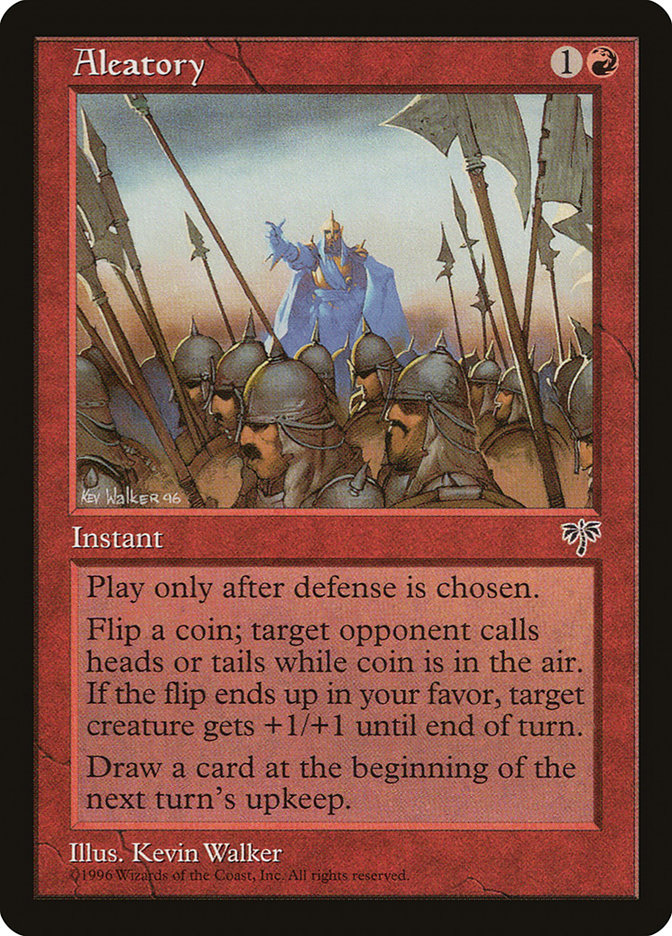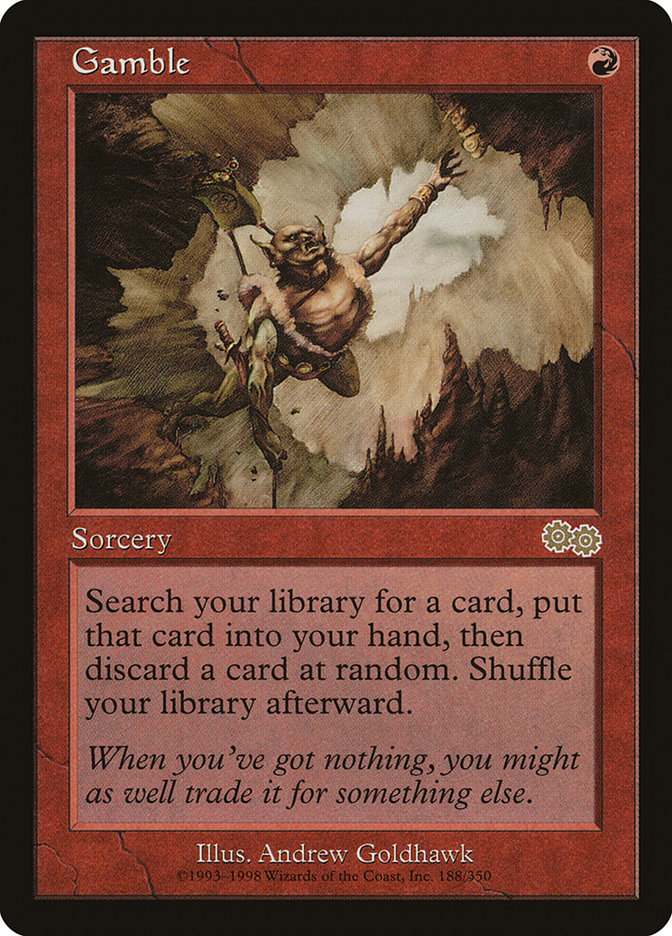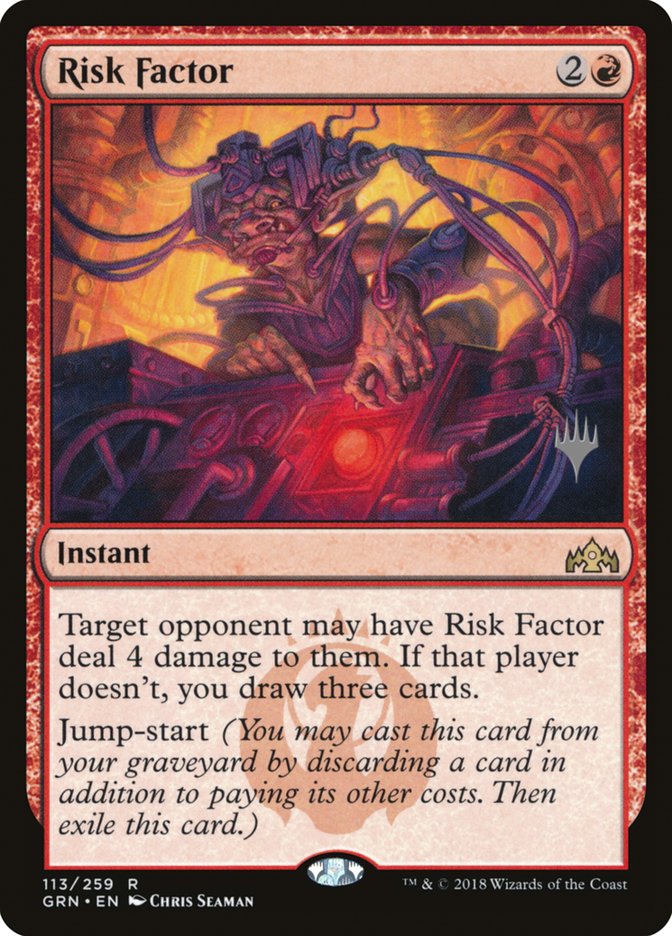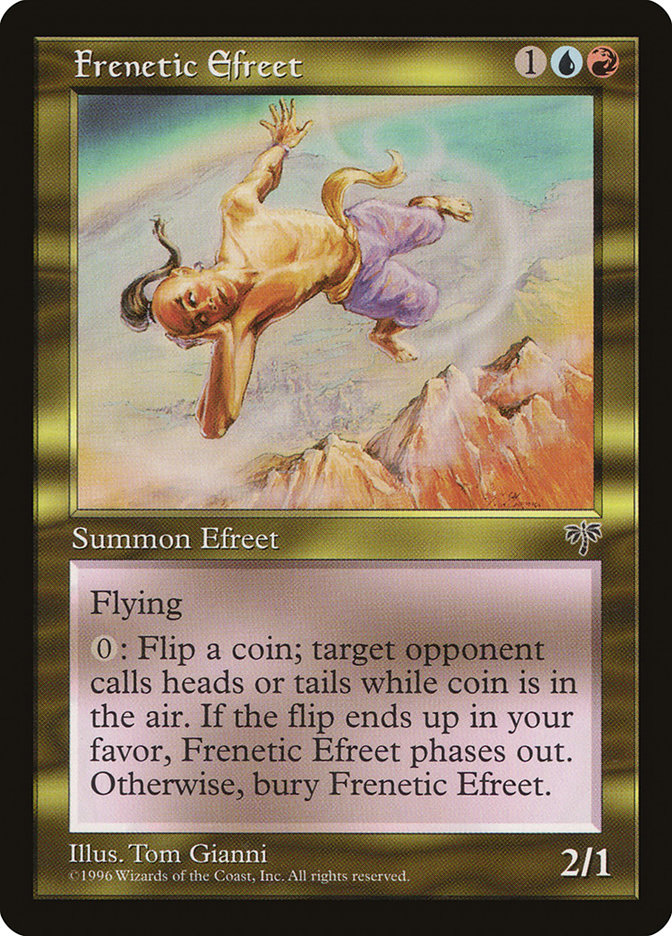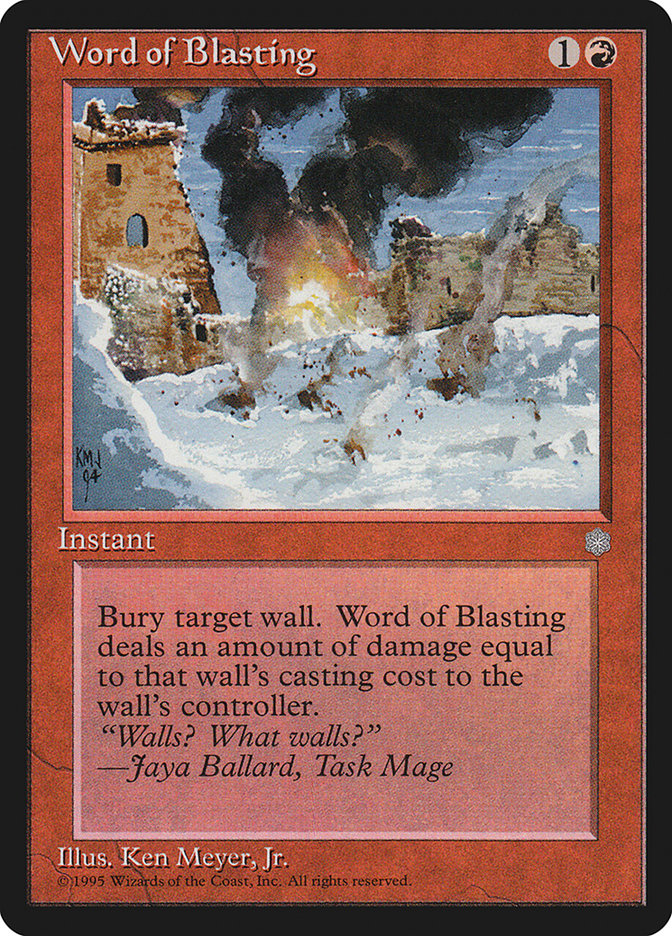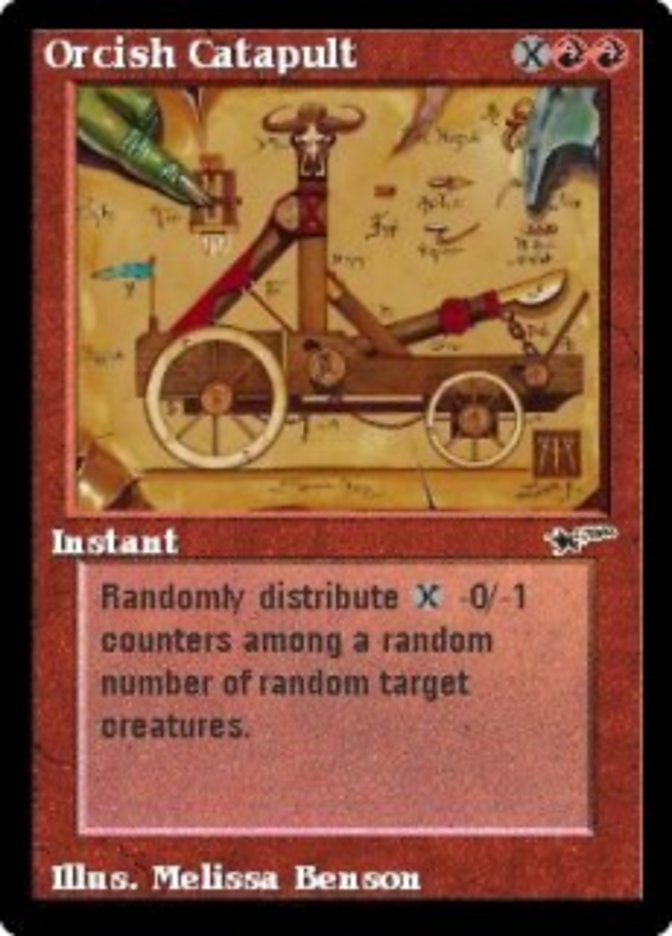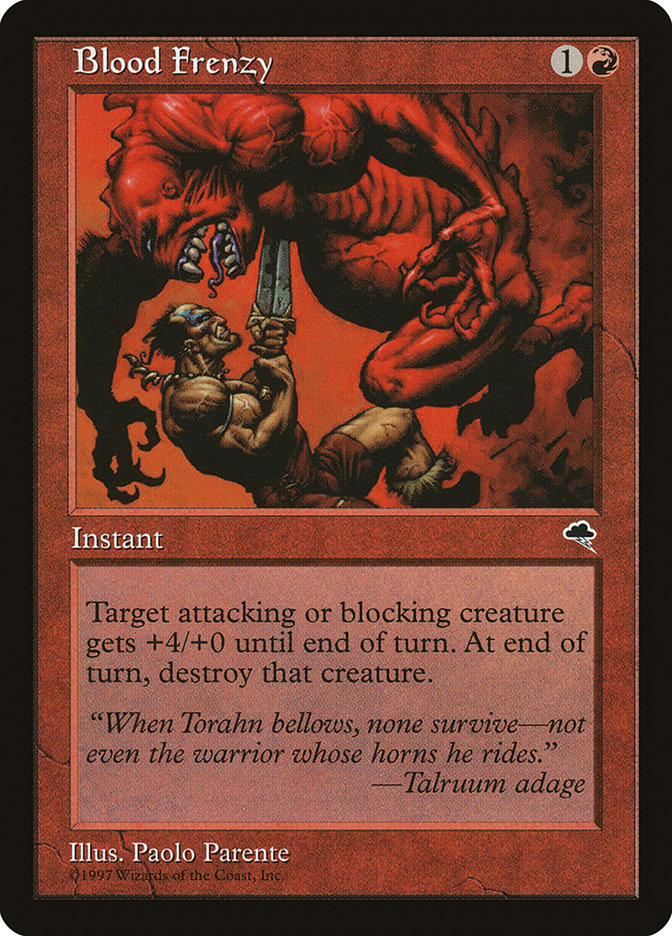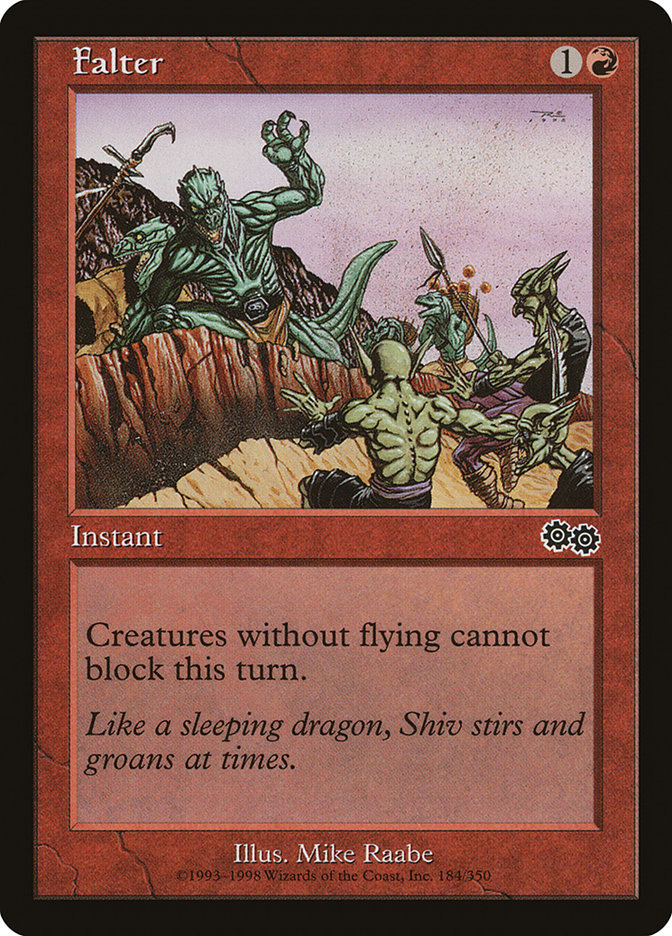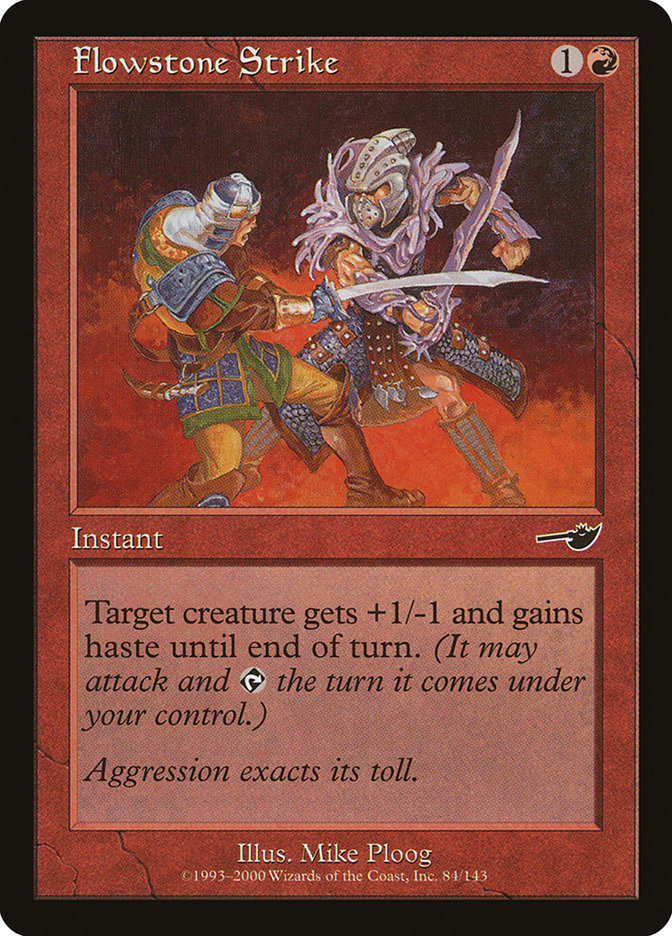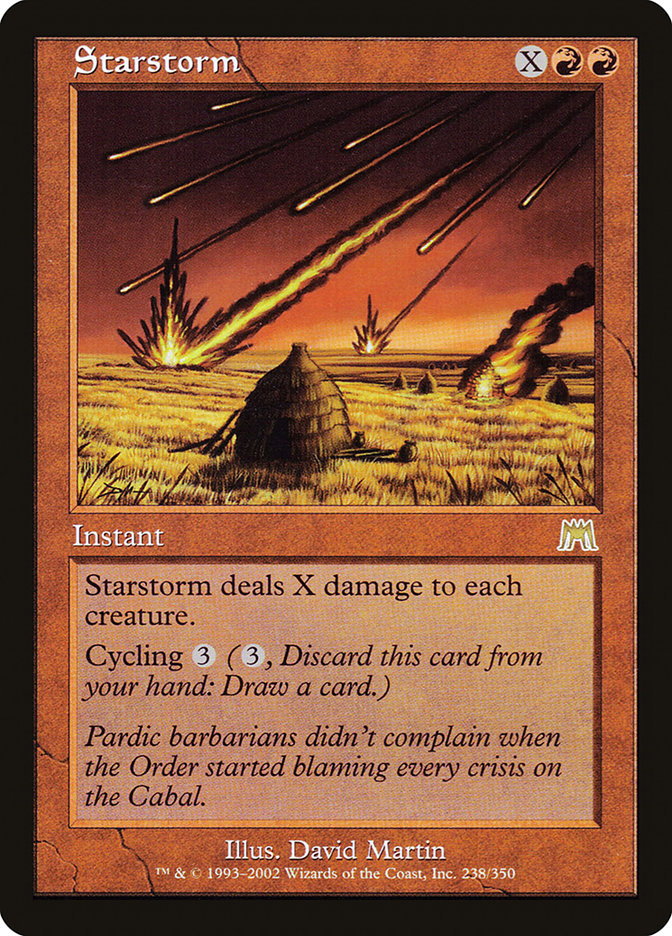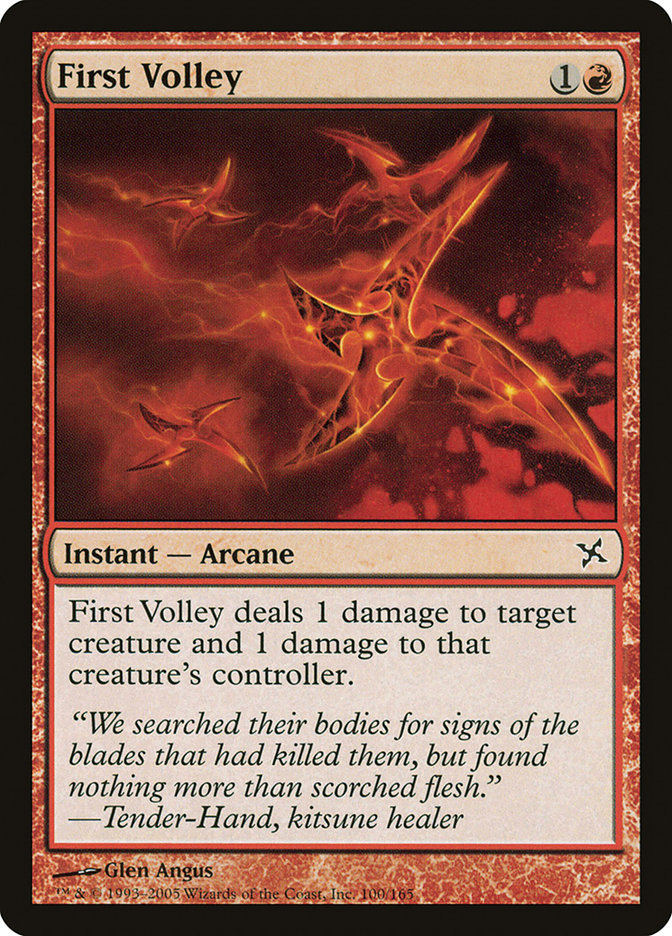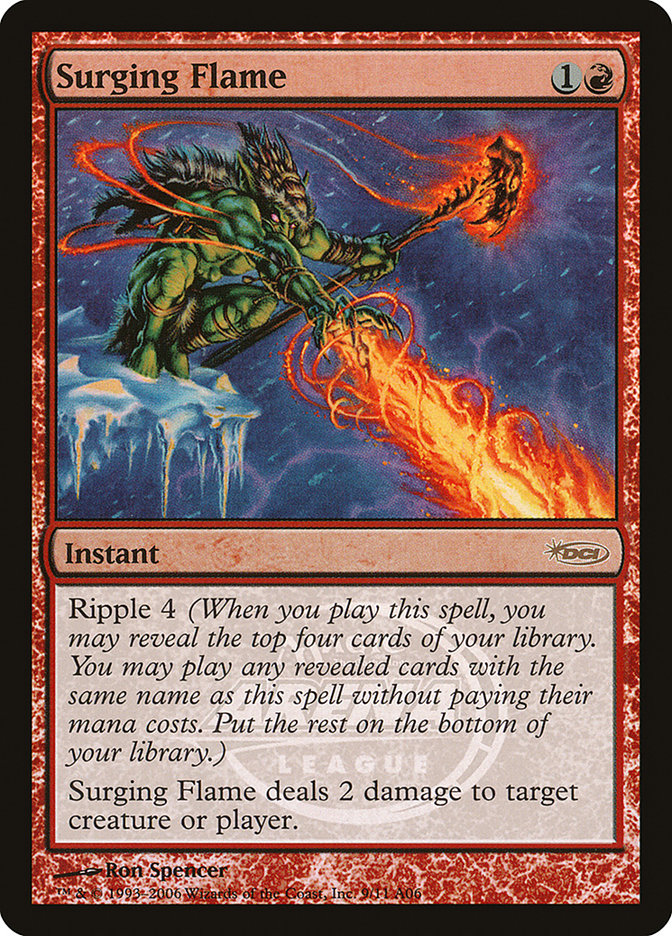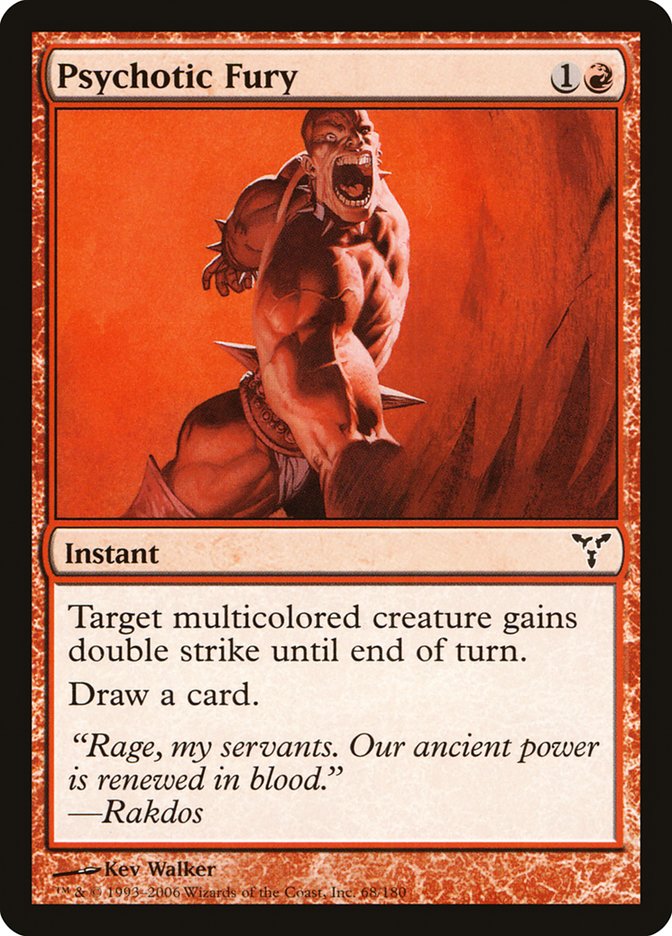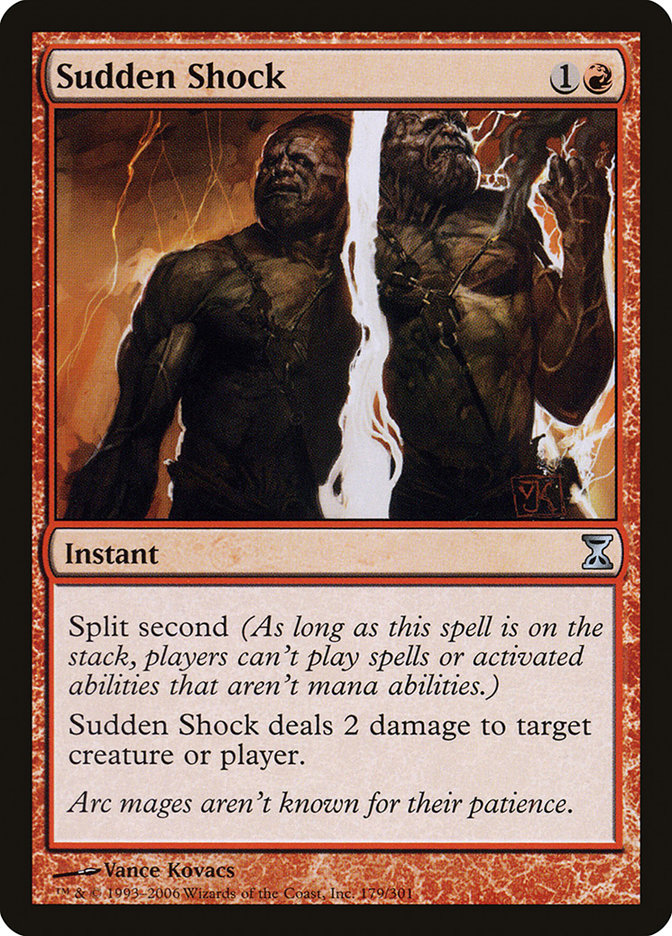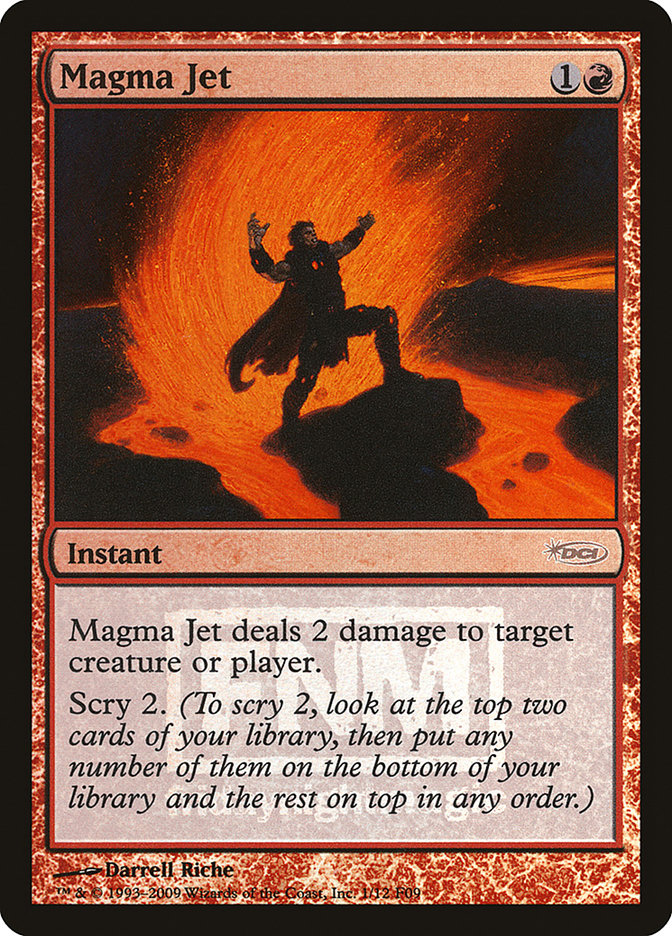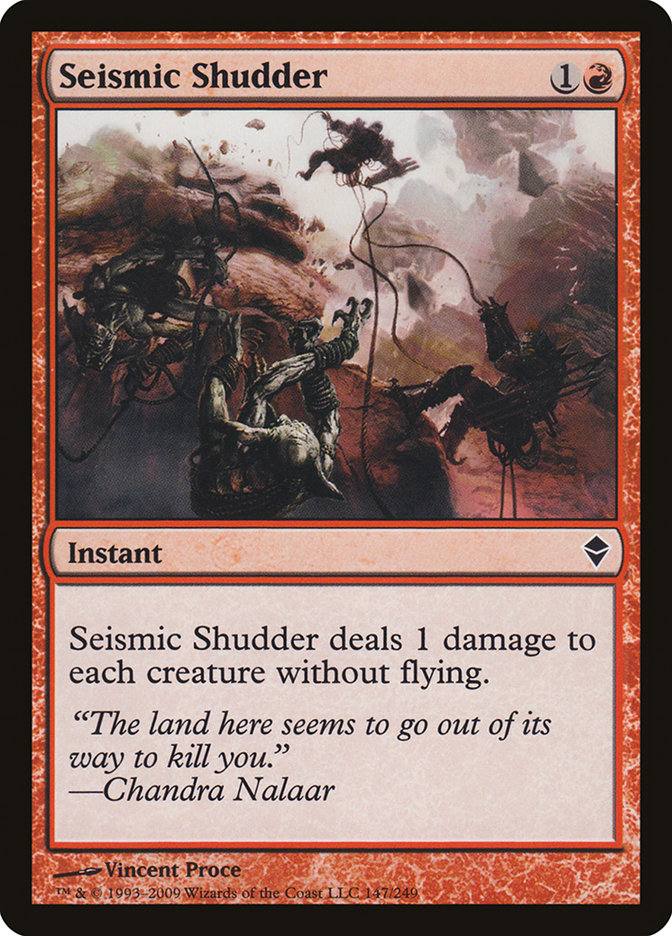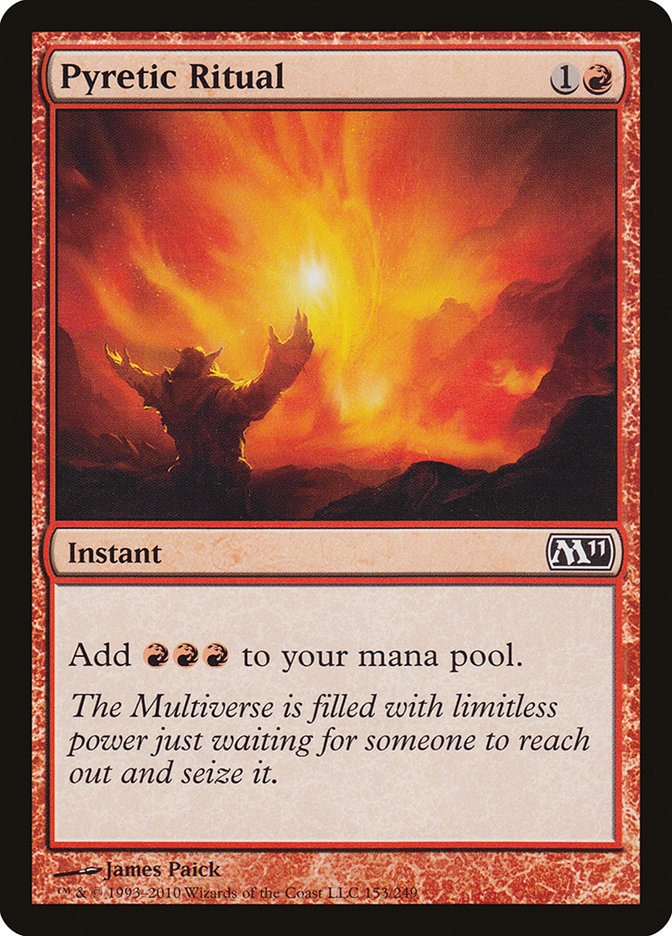Aleatory MTG Card
| Mana cost | |
| Converted mana cost | 2 |
| Rarity | Uncommon |
| Type | Instant |
| Released | 1996-10-08 |
| Set symbol | |
| Set name | Mirage |
| Set code | MIR |
| Number | 155 |
| Frame | 1997 |
| Layout | Normal |
| Border | Black |
| Illustred by | Kev Walker |
Text of card
Play only after defense is chosen. Flip a coin; target opponent calls heads or tails while coin is in the air. If the flip ends up in your favor, target creature gets +1/+1 until end of turn. Draw a card at the beginning of the next turn's upkeep.
Cards like Aleatory
Aleatory, a unique inclusion in the roster of chance-based effects in Magic: The Gathering, adds an unpredictable twist to the game. It sits in the same wheelhouse as cards like Gamble, where the element of risk is used to potentially gain an advantage. With Aleatory, you can counter a spell with the flip of a coin—a gamble that could turn the tide of a match if luck is on your side.
When looking at comparable mechanics, we encounter Risk Factor, which offers a choice to the opponent between allowing card draw or taking direct damage—a solid risk-versus-reward scenario. Unlike Aleatory, Risk Factor can influence the board without relying on a coin flip and can be used twice thanks to Jump-start. Frenetic Efreet is another card that capitalizes on chance, allowing its controller to potentially save the Efreet from destruction with a coin flip. This is akin to Aleatory’s evasive nature but with the additional benefit of leaving a creature on the board.
In summary, while Aleatory’s coin flip approach to control can be incredibly powerful in the right circumstances, it is part of a broader category of MTG cards where high-risk moves can lead to high rewards, contributing to the strategic depth and excitement of the game.
Cards similar to Aleatory by color, type and mana cost
Card Pros
Card Advantage: An Aleatory MTG card is designed to tilt the scales in your favor, often by offering additional means to draw cards. This may come in the form of direct draws, loot mechanics (where you draw cards and then discard), or even through library manipulation that lets you dig deeper to find the exact answers or threats you need right when you need them. This kind of card advantage is key in outpacing your opponents and ensuring that your hand remains equipped with a diverse arsenal of game-changing plays.
Resource Acceleration: Whether by ramping up your mana pool, reducing the cost of spells, or even producing alternative resources, Aleatory MTG cards with resource acceleration capabilities can propel you ahead. This is incredibly valuable as it gives you the opportunity to deploy more potent threats ahead of schedule or to respond more efficiently to the evolving battlefield. This not only destabilizes your opponents’ strategies but also significantly advances your board state by leaps and bounds.
Instant Speed: Flexibility in Magic the Gathering often dictates the flow of the game. Aleatory cards with instant speed interventions provide a strategic depth allowing for responses to opponent moves in real-time or at the end of their turn. This element of surprise can disrupt opponent strategies, protect your interests, and maintain a robust defense while affording the luxury to adapt to various situations without having to commit resources prematurely.
Card Cons
Discard Requirement: Many MTG players find discarding cards as an extra cost to play a spell notably burdensome. If the aleatory card you’re considering comes with such a stipulation, you could potentially lose valuable pieces from your hand, which can be particularly detrimental when your options are already limited.
Specific Mana Cost: With aleatory cards that demand a precise color or combination of mana, your deck’s versatility takes a hit. Decks not aligned with these mana colors might be unable to take advantage of such cards, restricting their overall utility across multiple deck types.
Comparatively High Mana Cost: If the aleatory cards you’re eyeing come with a high cost to get into play, it’s worth weighing them against other options. Such costs can dampen the pace at which you establish board presence, potentially giving opponents the upper hand while you’re tied up gathering resources for a single card play.
Reasons to Include in Your Collection
Versatility: Aleatory cards bring a level of unpredictability that can be an asset in various deck builds. Their ability to act as wild cards in crucial moments makes them adaptable to numerous situations.
Combo Potential: The unpredictable nature of aleatory cards can synergize with combo pieces that thrive on chance and probability, potentially tipping the scales in your favor unexpectedly.
Meta-Relevance: Within a meta that heavily emphasizes strategy and predictability, adding aleatory elements can disrupt opponents’ plans, providing you with an edge that’s hard to plan against.
How to Beat
Navigating the randomness of the Aleatory MTG card can be a compelling challenge. This card inflicts an element of chance upon the game, potentially turning the tides in your opponent’s favor. To neutralize its effects, players must employ strategies that either minimize randomness or remove the card from play. Utilizing targeted removal spells is a straightforward way to address threats like Aleatory. Instants such as Disenchant or Naturalize offer affordable and accessible solutions to discard enchantments, disrupting your opponent’s strategy.
Counterspells also serve as an effective preemptive measure against Aleatory. By keeping mana available and anticipating key plays, one can deny the opponent the opportunity to leverage chance to their advantage. Another tactic is to dilute the effect of randomness by fortifying your board presence, ensuring that Aleatory’s impact is less detrimental. Strategic deck building, with a focus on resilience and adaptability, can mitigate the influence of such unpredictable cards.
Ultimately, overcoming Aleatory in MTG demands a blend of foresight, precise timing, and a solid game plan. By focusing on control and countermeasures, players can transform apparent chaos into a winning formula.
Where to buy
If you're looking to purchase Aleatory MTG card by a specific set like Mirage, there are several reliable options to consider. One of the primary sources is your local game store, where you can often find booster packs, individual cards, and preconstructed decks from current and some past sets. They often offer the added benefit of a community where you can trade with other players.
For a broader inventory, particularly of older sets, online marketplaces like TCGPlayer, Card Kingdom and Card Market offer extensive selections and allow you to search for cards from specific sets. Larger e-commerce platforms like eBay and Amazon also have listings from various sellers, which can be a good place to look for sealed product and rare finds.
Additionally, Magic’s official site often has a store locator and retailer lists for finding Wizards of the Coast licensed products. Remember to check for authenticity and the condition of the cards when purchasing, especially from individual sellers on larger marketplaces.
Below is a list of some store websites where you can buy the Aleatory and other MTG cards:
 BUY NOW
BUY NOW BurnMana is an official partner of TCGPlayer
- eBay
- Card Kingdom
- Card Market
- Star City Games
- CoolStuffInc
- MTG Mint Card
- Hareruya
- Troll and Toad
- ABU Games
- Card Hoarder Magic Online
- MTGO Traders Magic Online
See MTG Products
Legalities
Magic the Gathering formats where Aleatory has restrictions
| Format | Legality |
|---|---|
| Commander | Legal |
| Legacy | Legal |
| Oathbreaker | Legal |
| Premodern | Legal |
| Vintage | Legal |
| Duel | Legal |
| Predh | Legal |
Rules and information
The reference guide for Magic: The Gathering Aleatory card rulings provides official rulings, any errata issued, as well as a record of all the functional modifications that have occurred.
| Date | Text |
|---|---|
| 2004-10-04 | You pick the target on announcement and flip the coin on resolution. |
| 2013-09-20 | If a turn has multiple combat phases, this spell can be cast during any of them as long as it’s after the beginning of that phase’s Declare Blockers Step. |
